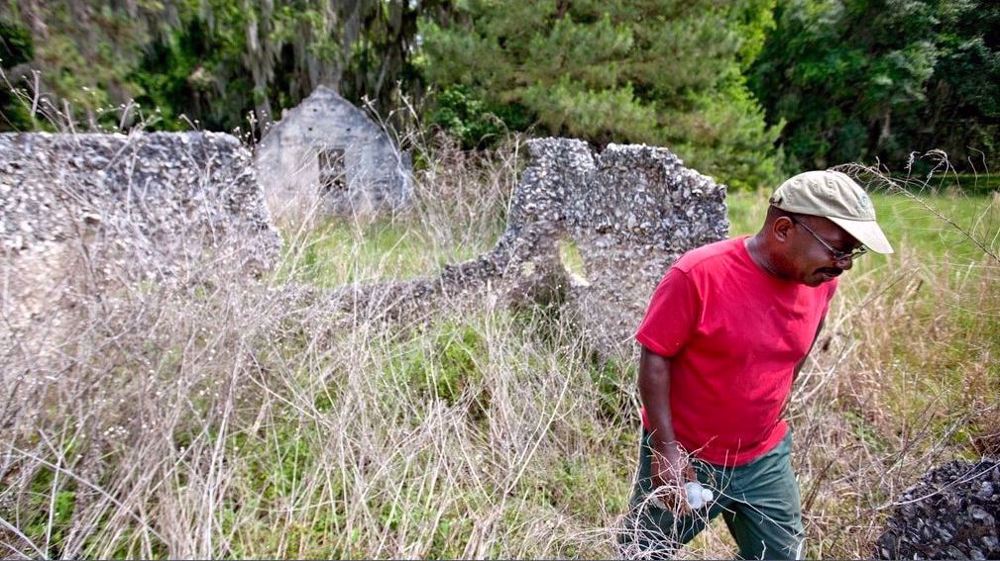Descendants of Black slaves in a tiny island community in the US state of Georgia have resumed a long-time legal battle against local government officials over a proposal to eliminate protections that for decades helped shield the Gullah-Geechee residents from high taxes and pressure to sell their land to developers.
On Thursday, the residents of Hogg Hummock and their supporters packed a courtroom with the aim of keeping protections in place that helped them keep their land.
The group opposed a proposal by McIntosh County officials to cast aside zoning ordinances that limit homes to modest sizes in the enclave of 30 to 50 Black residents on Sapelo Island off the coast of Georgia.
They said removing the zoning protections would drive out Hogg Hummock residents by attracting developers looking for profits and wealthy buyers eager to build large beach houses, causing land values and property taxes to soar and the Black residents to move elsewhere.
"It's the erasure of a historical culture that's still intact after 230 years," said Reginal Hall, a Hogg Hummock landowner whose family has deep roots on the island. "Once you raise those limits and the land value increases, we only have two to three years at most. If you talk about the descendants of the enslaved, 90 percent of us will be gone."
Commissioner Roger Lotson, whose district includes Sapelo Island, said it was not the first time Black residents of Sapelo Island were battling with the county government.
Lotson said he was trying to persuade them that Hogg Hummock was worth preserving.
"It's a step back in time," Lotson said. "And the fear of many, including myself, is that by allowing any size house over there, soon the uniqueness of Sapelo will go away."
However, Patrick Zoucks, the county manager, defended the zoning proposal in a statement issued before the Thursday meeting, saying it was "in the best interest of the residents of Hogg Hammock and all of the citizens of McIntosh County."
Before devising the zoning ordinances, some of the Black families in the enclave had sold their land to outsiders who built vacation homes. This caused soaring property values and tax increases.
The remaining Hogg Hammock residents and landowners packed the county courthouse in 2012 to appeal to the painful tax rises. County officials rolled most of them back.
The Black residents in Hog Hammock on Sapelo Island are the last known members of the Gullah-Geechee community, descendants of enslaved West Africans sent to the island in the 1700s and 1800s for forced labor on the island's plantations.
In 1996, the Hogg Hammock community was listed on the National Register of Historic Places as Hog Hammock Historic District and to visit the preserved island, one must obtain a permit issued by state tourism authorities.
Ghana is interested in purchasing a floating nuclear power plant from Russia, Ghanaian Ambassador to Russian Koma Steem Jehu-Appiah told Sputnik.
"I know that our minister of energy was here last year and signed a corresponding agreement. I think this is innovative, and in a conversation with the minister of energy, he said that the country is interested.
So, Ghana could purchase such a nuclear power plant," the diplomat said when asked about the possibility of Ghana purchasing a floating nuclear power plant.
Russia and Ghana began cooperation in the field of nuclear energy after signing an intergovernmental agreement in 2015.
The agreement outlined plans for joint work in the areas of training specialists, building nuclear power plants and related infrastructure, and providing maintenance services. In October 2023, representatives of Rosatom met with the Ghanaian Ministry of Energy in Cape Town. At the meeting, Russia proposed using floating nuclear power plants to supply power to ...














